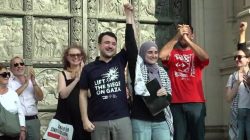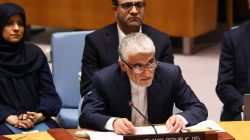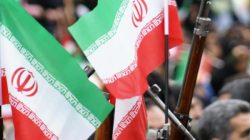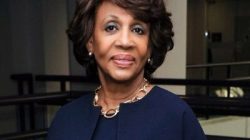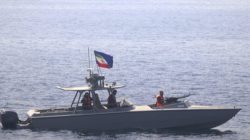The Somali Federal Minister of Livestock, Forestry, and Range, Hon. Hassan Hussein Mohamed, along with high-ranking officials from his department, attended the 92nd General Session of the World Organisation for Animal Health (WOAH) in Paris, France.
The prestigious global summit themed “Enhancing Worldwide Cooperation for Animal Health Safety” gathered top officials, researchers, animal healthcare experts, and policymakers worldwide. They convened to explore the prospects of animal health, methods to prevent illnesses transmitted between animals and humans, as well as plans to improve vet facilities.
The World Organisation for Animal Health (WOAH), previously called OIE, stands out as the primary global body focused on enhancing animal health across the world. Established in 1924, WOAH advocates for international standards and fosters collaboration in disease management, veterinary infrastructure, and commerce.
The 92nd Annual Session serves as an important yearly gathering where member nations assess advancements in global animal health, establish new guidelines, and tackle rising issues impacting both livestock and public well-being.
At a ministerial-level forum, Minister Hassan Hussein Mohamed highlighted Somalia’s strong dependence on the livestock industry, noting that this sector continues to be the foundation of the nation’s economy. It contributes more than 60% of export earnings and supports the wellbeing of countless individuals—especially those living as nomadic herders and agricultural farmers combined.
“Livestock are not merely a component of Somalia’s economy; they form a cornerstone of our community’s culture, identity, and sustenance,” stated the Minister. “We urge increased global cooperation in preventing diseases, improving vaccine availability, and strengthening veterinary capabilities.”
The main topics covered in the summit were:
- Tackling cross-border animal illnesses like Rift Valley Fever and Peste des Petits Ruminants (PPR)
- Enhancing vaccine accessibility and supply chains in emerging nations
- Creating robust veterinary health systems capable of adapting to climate change and disruptions caused by conflicts
- Enabling secure and equitable livestock commerce via scientifically grounded health certification and monitoring
- Advancing One Health strategies, we combine efforts in human, animal, and environmental health responses.
Minister Hassan outlined Somalia’s key goals which include:
- Enhance nationwide disease monitoring systems
- Extend veterinary services to reach rural and nomadic communities.
- Enhance collaborations with both local and global partners.
- Back sustainable approaches for developing livestock-related projects.
He restated Somalia’s complete dedication to international protocols such as those set by WOAH and the FAO. This aims at establishing robust systems that enhance animal health, bolster rural economies, and promote diversified growth.
Amidst frequent droughts, unpredictable weather patterns, and inadequate veterinary facilities, Somalia’s livestock industry encounters growing challenges. Participating in international events such as the WOAH summit allows the nation to:
- Access technical assistance and funding resources.
- Coordinate national policies with global benchmarks
- Establish trust within local and international animal husbandry trade sectors
- Enhance worldwide health protection via illness management
As Somalia progresses on its journey towards recovery and resilience, maintaining robust animal health and veterinary systems remains essential for ensuring food security, generating income, and safeguarding public health.
Attending the 92nd WOAH General Session represents a fresh dedication to updating livestock regulations, enhancing international collaborations, and confirming that Somalia continues to play an active role in worldwide animal health management.
Provided by SyndiGate Media Inc.
Syndigate.info
).

